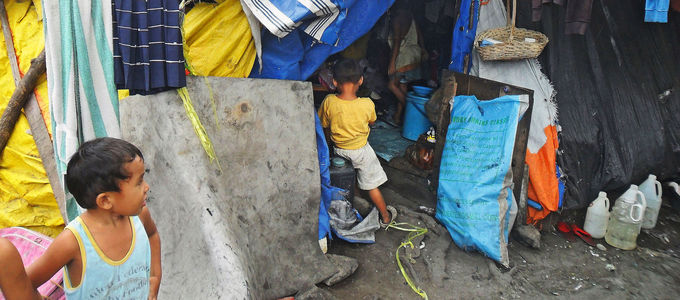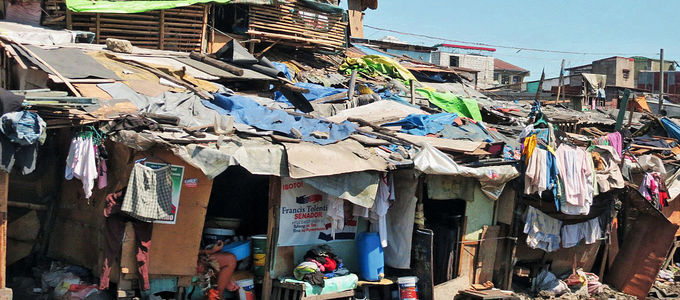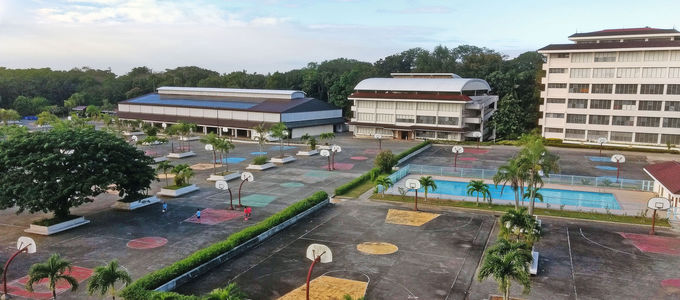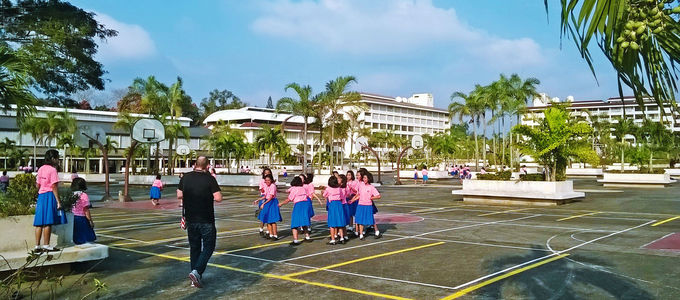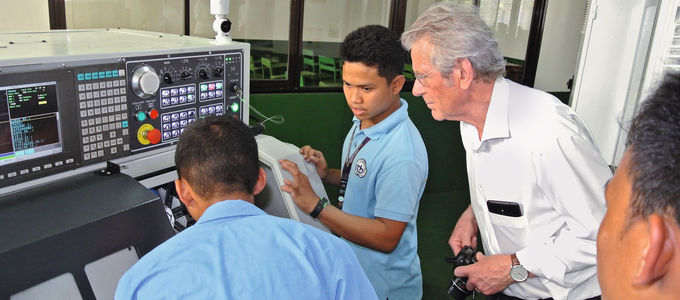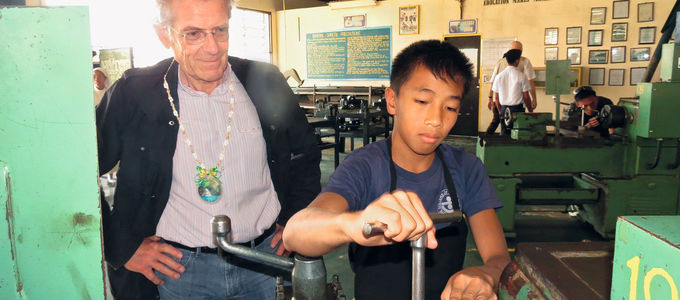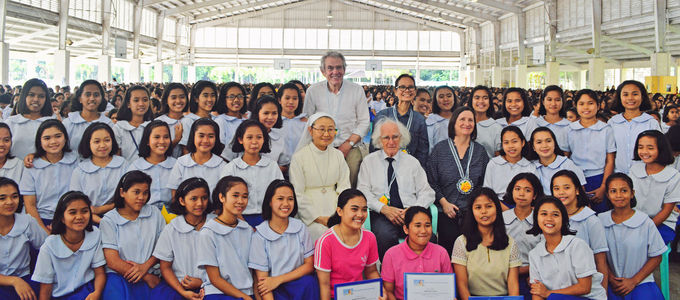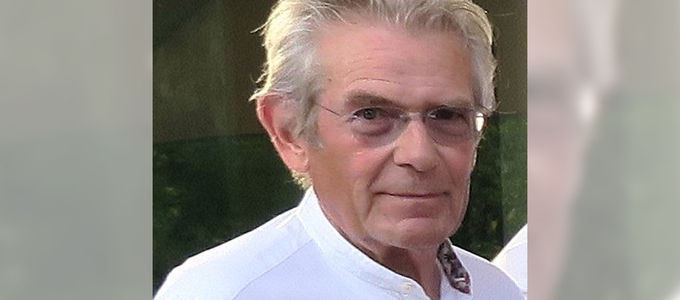
He has been involved with charity and fundraising for 45 years. Here is how a New Apostolic manager from Germany helps Catholic nuns in the Philippines get thousands of children out of the slums.
Small huts made of scrap wood, corrugated iron, plastic, and cardboard that have been nailed together, often directly on the beach and on stilts over the water. These small dwellings are home to large families. There is no power, running water, or toilets. And everywhere you look there are mountains of trash, poverty, and suffering. Manila’s slums are home to the poorest of the poor.
Malnutrition, diarrhoea, skin diseases, drug use, sexual abuse—the list of hazards to which children are exposed in these slums is long. “The conditions here are unimaginable,” Bernd Ambiel from the congregation Karlsbad-Langensteinbach in Germany says. “After my first visit to a slum I was traumatised for a year.”
Every time Ambiel, an economist and the long-serving manager of a marketing firm, goes to Manila he visits one of the slums as a member of the board of a sponsoring association that supports The Sisters of Mary, an independent Christian institution devoted to helping the poor in the Third World. The Sisters have been operating charitable programmes for more than fifty years in poor neighbourhoods of large and overcrowded cities.
Jointly active
Already Bernd Ambiel’s grandparents were New Apostolic. A number of faithful ministers have come from this family. Music has always meant a lot to him. He is an organist and choir leader and still today plays the organ in his congregation.
How did his commitment to The Sisters of Mary come about? Bernd Ambiel writes: “At the time, my boss often travelled to America on business. In 1975 he came back from a trip and told me that he had met a Catholic priest who looked after orphans in Korea. He wanted to support this project. With seven employees we founded an association. As manager of our company’s finance division, I was elected to the board of directors.”
“This is applied Christianity!”
On average, the association transfers about 18 million euros for humanitarian aid in the Philippines. The funds allow The Sisters of Mary to run a school with four campuses in the Philippines—two for girls and two for boys.
More than 10,000 children and youth from underprivileged families are currently living there and attending school. About 500 children complete their courses every year. Many complete junior or senior high school and continue with post-secondary education thanks to donations and scholarships from patrons.
The girls and boys are not only taught academic subjects but also receive extensive training in manual skills. Their skills are sought after on the job market.
Gratitude motivates doubly
The children pass on the love and compassion they experienced at the school to their work colleagues, friends, and neighbours, and to their own children. The Sisters of Mary succeed in awakening new hope in a generation that is otherwise largely hopeless. “This is applied Christianity!” This is something that Bernd Ambiel hears quite often when he talks about his work.
Compassion and charity is what motivates him in his work in the sponsors’ association. Gratitude to God for the fulfilled life that he may lead also motivates him in his social and volunteer work. In addition to raising funds for the schools, he has also been active on the board of directors of a hospice association in his town for ten years. “I’m a numbers man,” he smiles and adds with respect for the staff, “I’m not involved with the end-of-life care. This is something you have to be born for.”
At the time of this interview, an impending hip operation had slowed Bernd Ambiel down a little bit. But he said that he was already looking forward to further projects in the Philippines. Ambiel says that he always pictures the children’s shining eyes and the gratitude of the graduates. One said: “If you wouldn’t do this for us, many of us would still be in the slums.”






